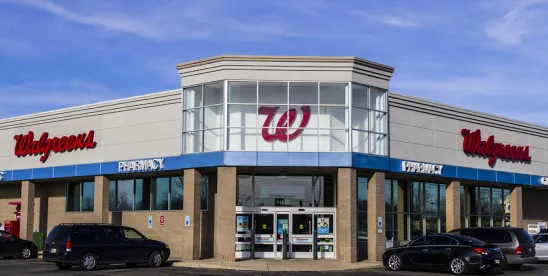The Department of Justice has launched a number of enforcement actions targeting pharmacies for alleged violations of the False Claims Act (FCA). Recently, Walgreens has been the subject of two noteworthy government settlements related to alleged FCA violations.
Allegations Related to Medicaid Billing for Generic Medications
In the first, on March 27, 2025, the U.S. Attorney’s Office for the District of Massachusetts announced that it had reached a $2.8 million settlement with Walgreens concerning allegations that the company overbilled Medicaid programs in Massachusetts and Georgia. Relators filed the qui tam case in 2019 and the government intervened for settlement purposes. The United States, Massachusetts, and Georgia alleged that, from 2008 to 2023, Walgreens submitted claims to MassHealth (Massachusetts’ Medicaid program) and Georgia Medicaid for certain generic medications that were higher than the customary price point for those drugs. Doing so, the government alleged, violated the federal FCA, as well as the states’ respective False Claims Acts.
Medicaid programs reimburse pharmacies for dispensing generic medications using the lowest of four reporting price points, one of which is the pharmacy’s “usual and customary price” as determined by the pharmacy. In this case, Walgreens submitted a higher price for the generic medications and failed to report the correct “usual and customary price,” causing the states’ Medicaid programs to overpay for those generic medications. Instead of the standard retail price (which is typically used to calculate the usual and customary price), Walgreens allegedly submitted the “gross amount due” when it was higher than the standard retail price. The extensive list of medications at issue included both over the counter and prescription generic medications. Notably, the claims against Walgreens in this case are similar to those brought in a pair of whistleblower FCA suits against retail drug pharmacies that reached the U.S. Supreme Court in 2023, a case we previously analyzed here that established the current scienter (knowledge) standard for potential liability under the FCA.
Of the $2.8 million settlement, roughly $1.4 million will go to the federal government, Georgia will receive $352,000, and Massachusetts will receive $1.1 million.
Allegations Related to Prescriptions of Controlled Substances
Less than a month later, on April 21, 2025, the government announced the second settlement. Under this settlement agreement, Walgreens will pay the federal government $300 million, with an additional $50 million owed if the company (or a significant portion of its assets) is sold, merged, or transferred to a non-affiliated entity before 2032. The settlement resolves allegations that, from 2012 to 2023, Walgreens filled millions of unlawful controlled substance prescriptions in violation of the Controlled Substances Act, and then sought payment for those prescriptions from federal programs in violation of the FCA.
In its complaint, the government alleged that Walgreens pharmacy staff knew that many of these prescriptions were likely to be unlawful (because they were not issued in the usual course of professional practice, or were not issued for a legitimate medical purpose, or both), and some had been issued by practitioners known to regularly prescribe controlled substances in an unlawful manner. The complaint alleged that Walgreens filled such prescriptions “without resolving the significant concerns those prescriptions raised.” For example, according to the government, many of the prescriptions were for opioids prescribed in excessive quantities, filled too early, or prescribed in a dangerous and commonly abused combination with other drugs – i.e., the “trinity” of drugs (which term refers to the combination of an opioid, a benzodiazepine, and a muscle relaxant, and which is viewed as a prescribing “red flag” by the government). Walgreens allegedly “systematically pressured” pharmacy staff to fill these prescriptions quickly, without allowing them sufficient time to verify their legitimacy and necessity and doing so despite “clear red flags.” The complaint described a corporate culture “wherein pharmacists who diligently observed their responsibility to verify the legitimacy of controlled-substance prescriptions were subject to reprimand.” Further, Walgreens compliance officials allegedly prevented these practices being curtailed by withholding prescriber information from pharmacists which would have allowed them to identify patterns of unlawful prescribing and warn one another about problematic practitioners.
The settlement stipulates several terms of payment, including one aimed at preventing employee bonuses from being used as a method of evading payment of the settlement with the government: If bonuses cumulatively exceed $400 million in a given year, the excess amount factors into the calculation of Walgreens’ annual payment amount. In addition to the settlement payment, Walgreens has agreed to several monitoring and oversight requirements going forward, including an agreement with the DEA to implement and maintain certain compliance measures for the next seven years. This agreement with the DEA requires Walgreens to establish and maintain policies requiring pharmacists to validate prescriptions for controlled substances and dispense them appropriately, provide annual training to pharmacy employees regarding their legal obligations relating to controlled substances and ensure appropriate pharmacy staffing. As part of the settlement, Walgreens is also under a five-year Corporate Integrity Agreement with HHS-OIG, which further requires a corporate compliance program.
Conclusion
These cases underscore the government’s focus on using the FCA to police fraud and abuse in pharmacy pricing and prescribing practices. It also continues to highlight a prudent approach for companies to monitor red flags and outliers and have a robust compliance program. We will continue to monitor pharmacy-related enforcement actions.
This post was co-authored with Ivy Miller, legal intern at Robinson+Cole. Ivy is not admitted to practice law.




 />i
/>i
